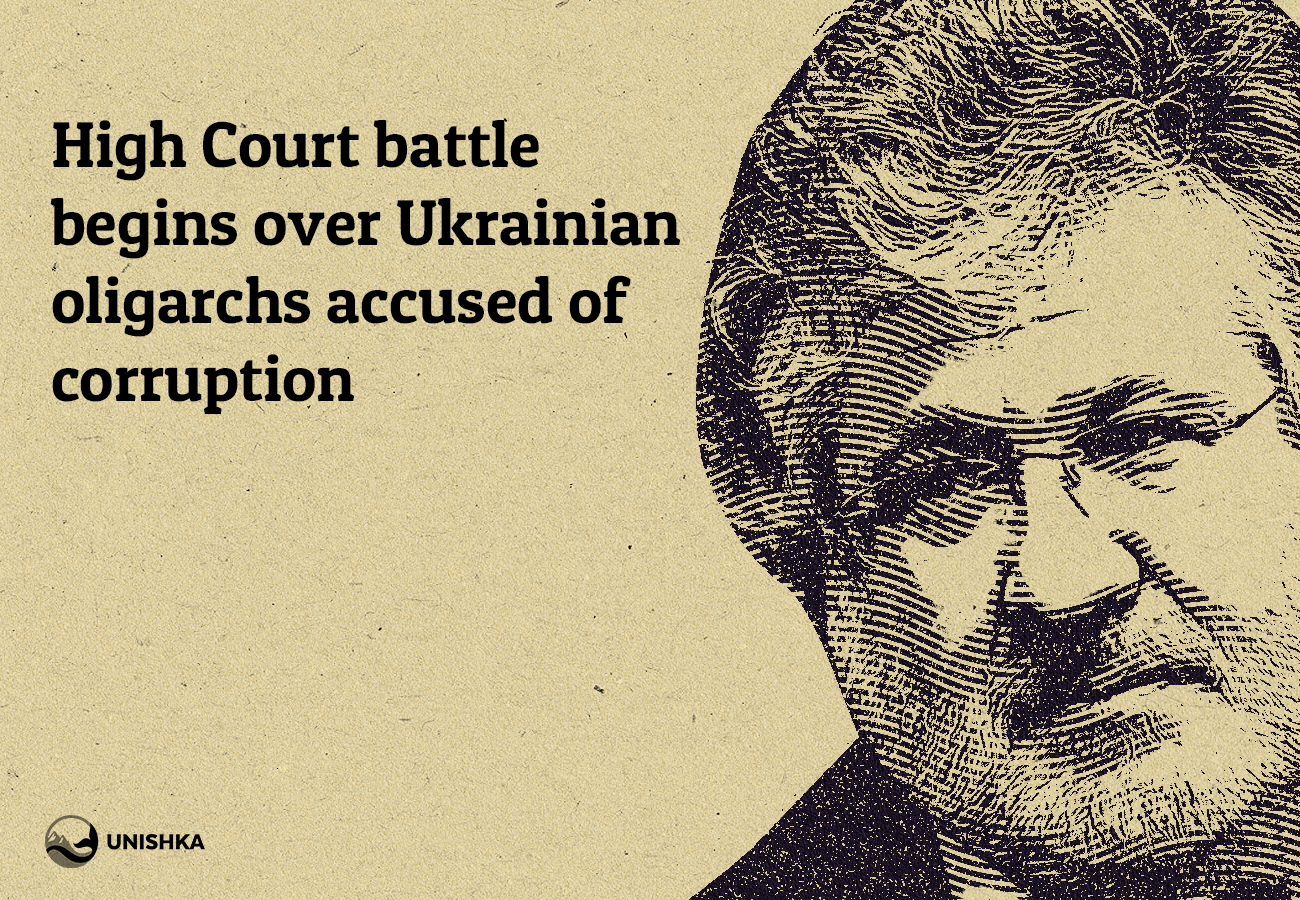
High Court battle begins over Ukrainian oligarchs accused of corruption
11 June 2023 ( Telegraph )
Two oligarchs accused of looting nearly $2bn (£1.6bn) from Ukraine’s largest bank are set to begin their High Court battle in London, as President Volodymyr Zelenskyy battles to eliminate decades of corruption.
Privatbank has accused its former oligarch owners, Ukrainian billionaires Igor Kolomoisky and Gennadiy Bogolyubov, of using sham loans and shell companies to orchestrate and cover up one of Europe’s largest ever banking frauds.
The money laundering scandal is claimed to have led to Privatbank’s nationalisation in 2016, after the National Bank of Ukraine discovered a $5.5bn hole in the commercial lender’s balance sheet.
The highly-anticipated four-month trial begins one-year behind schedule, after the High Court postponed proceedings shortly after Russia’s invasion of Ukraine.
It marks a key litmus test for president Zelenskyy, not least because victory could result in a hefty pay-day for cash-strapped Ukraine.
Privatbank is seeking to recover $1.9bn in damages plus as much as $4.2bn in interest, meaning that any funds returned to the state-owned bank could ultimately go towards defeating Vladimir Putin or helping rebuild the war-torn country.
The cost of Ukraine’s reconstruction and recovery is estimated to have grown to $411bn in the one-year period since Russia’s invasion in February 2022, according to a joint assessment by the World Bank, United Nations, European Commission and Ukraine’s government.
Ukraine will need at least critical investment of $14bn in 2023 alone, which is $11bn more than its government has accounted for in this year’s budget, the report said.
The trial also comes as President Zelenskyy faces significant pressure from Western countries to crack down on corruption in return for extensive financial and military aid, which his government has become heavily reliant on.
Financial reforms, including protecting the independence of Ukraine’s central bank, has been among the International Monetary Fund’s requirements in exchange for billions of dollars in loans needed to meet the country’s debt obligations.
In March, the Washington-based fund said it had agreed to provide a $15.6bn extended funding facility to boost the recovery of Ukraine’s fragile economy and strengthen the financial institutions needed for long-term growth. Being seen to tackle corruption while defending against Putin’s attack has also been crucial to Ukraine’s goal of securing EU membership.
Denys Shmyhal, Ukraine’s prime minister, earlier this year announced an ambitious timetable for Ukraine to join the bloc within two years, after the country was granted candidate status in recognition for its progress on corruption.
President Zelenskyy has been under particular pressure from Western powers to prosecute Mr Kolomoisky given his past personal connections with the 60-year-old billionaire.
Mr Kolomoisky, once regarded as one of Ukraine’s most powerful men who reportedly kept a shark tank in his private office, owned the media empire which launched the former actor’s comedy career and helped him win his 2019 landslide election.
President Zelenskyy, who was elected on an anti-corruption and anti-establishment manifesto, has denied being supported by the tycoon.
His evolution from novice politician to wartime statesman has seen President Zelenskyy distance himself from Mr Kolomoisky by attempting to dismantle Ukraine’s post-Soviet oligarchic system that has prevailed since the country gained independence in 1991.
This has involved taking back control of key industrial and strategic assets which for decades have allowed a handful of unelected Ukrainian oligarchs to wield enormous political influence from the shadows.
According to President Zelenskyy, the process of “de-oligarchisation” will only be complete when oligarchs become just representatives of big business.
This has involved cleaning up Ukraine’s financial sector through Western-backed reforms, such as the “anti-Kolomoisky” banking law introduced in 2020 which outlawed the return of state-owned banks to their former owners.
It prevents Mr Kolomoisky and Mr Bogolyubov from taking back control of Privatbank, which they have argued was illegally nationalised. The IMF previously warned that reversing ownership could threaten Ukraine’s financial stability.
Privatbank’s London lawsuit against Mr Kolomoisky comes after the tycoon’s mansion was raided by Ukraine’s security service earlier this year in connection with a separate embezzlement investigation of Ukraine’s largest oil company and refiner, Ukrnafta and Ukrtatnafta.
The two companies, previously controlled by Mr Kolomoisky, were among the five strategic enterprises seized by Ukraine’s government last November.
It followed a fresh wave of anti-corruption measures, which also saw President Zelenskyy remove several government ministers amid allegations of war-time graft.
The Privatbank case will also consider how London was allegedly used by the oligarchs to launder dirty money, as the UK’s post-invasion economic crime bill crawls through Parliament.
The case includes three UK registered suppliers, allegedly used by Mr Kolomoisky and Mr Bogolyubov to extract funds through bizarre supply agreements, including for 126,000 tons of concentrated apple juice and 2.4m tons of Australian manganese ore.
Mr Bogolyubov has warned the English courts that the fraud trial threatens to wipe out his fortune, which includes his £62m London mansion in Belgrave Square.
Mr Kolomoisky has denied any wrongdoing. A statement provided by his lawyers at City firm Fieldfisher said: “The claim forms part of a politically motivated campaign against him that commenced with the wrongful expropriation of the Bank from him and his fellow shareholders.
“He is confident that it will be established that the Bank has not in fact suffered any loss whatsoever in respect of the transactions of which it complains.”
Representing Mr Bogolyubov, George Maling,of Enyo Law said: “Mr Bogolyubov utterly rejects the allegations. Despite years of intensive investigation and millions of documents having been disclosed, PrivatBank has produced absolutely no evidence that Mr Bogolyubov had any knowledge of, much less directed or benefitted from, any such alleged activities.
“PrivatBank’s claims, which rely on nothing more than unfounded inference, are legally and factually misconceived.”
A statement provided by PrivatBank’s lawyers said: “The bank has throughout had confidence in the strength of its claims and that it will succeed in proving that it was the victim of fraud on a massive scale”
SEE THE ORIGINAL ARTICLE


